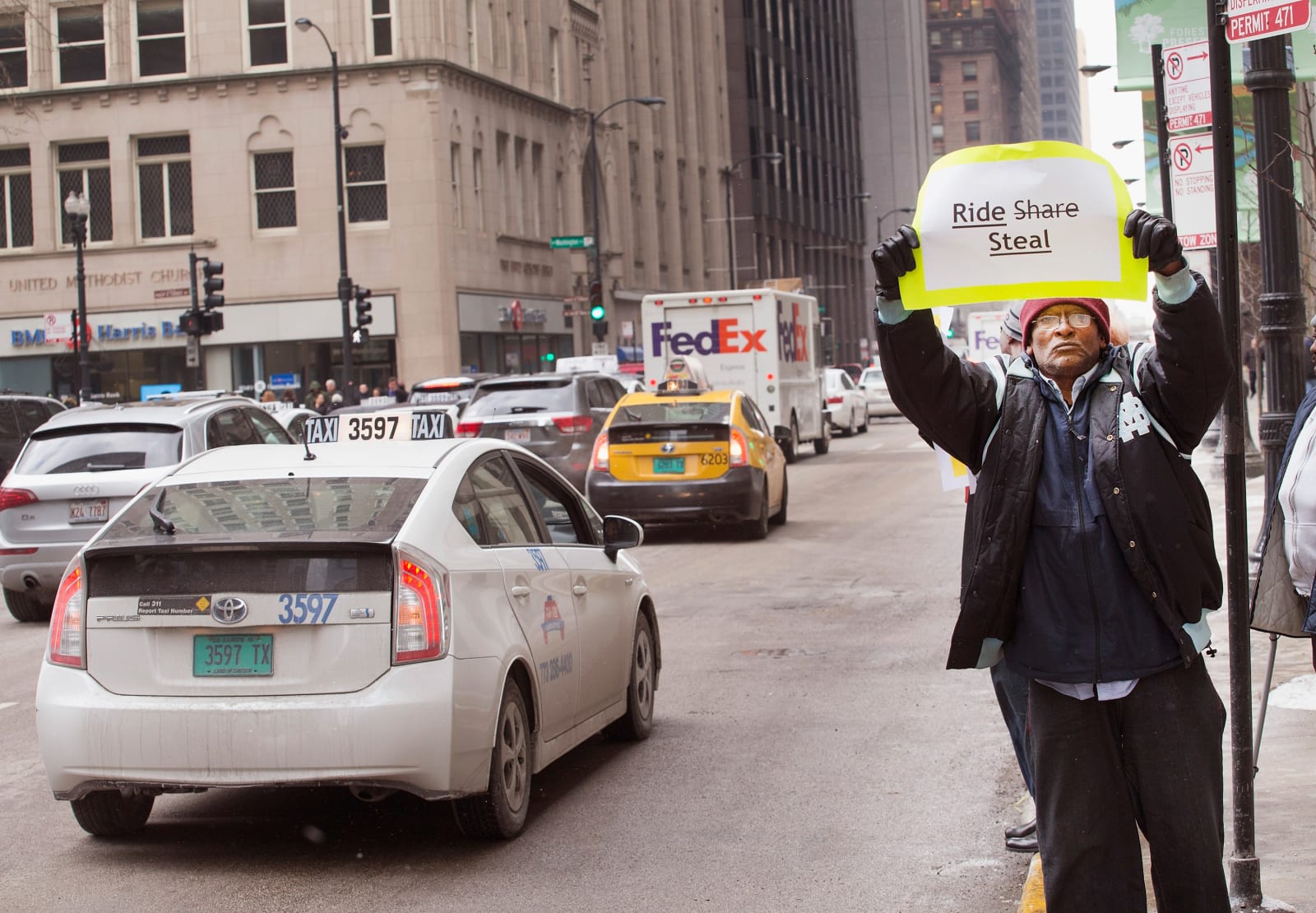As is the case in many cities around the world, the debate over regulation of ride-sharing services like Uber and Lyft rages on. In Chicago, the city council voted down a measure this week that would’ve required fingerprint background checks for drivers and maintain a certain number of vehicles that accommodate handicapped passengers. Uber has already said that fingerprinting won’t help and would most likely cause them to stop offering rides in the city. The council instead plans to study fingerprints for six months before revisiting possible regulations.
In terms of handicapped passengers, services will have a year to begin to offer those types of rides. What’s more, Uber and Lyft drivers will be required to obtain a chauffeur’s license, which can be done online. Cab drivers, on the other hand, must attend class in person to gain the required credentials and those courses are more expensive, according to the Chicago Tribune. The failed measure would’ve also required up-front drug testing and a physical exam, but instead the city’s license commissioner will require those for drivers only when a complaint is filed.
Mayor Rahm Emanuel has backed ride-sharing services in the city despite vocal opposition over fair competition and unfair regulations. Emanuel said that the likes of Uber and Lyft employ 90,000 registered drivers and offer people in Chicago more transportation choices, especially in underserved neighborhoods. Chicago approved a package from taxi unions in 2014 that, among other things, allowed for cabs to have their own app for hailing a ride. The discussion over the services is far from over in the city, especially with the taxi industry’s stance that the new rules do too little to even the playing field.
(32)

